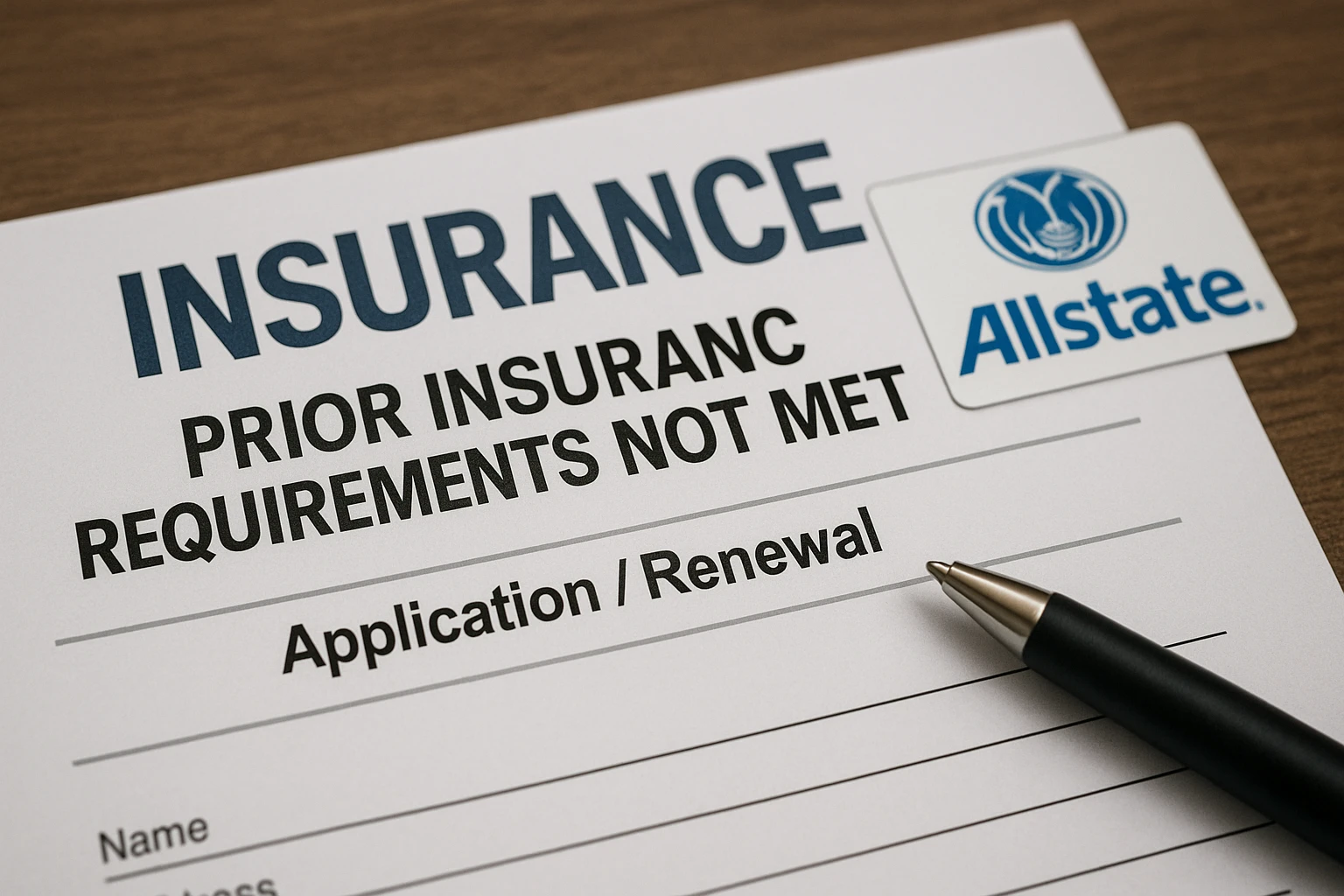Life Insurance Quotes Explained – How to Compare & Save in 2025
📑 Table of Contents
- Life Insurance Quotes: The Ultimate 2025 Guide to Comparing & Choosing the Right Policy
- 1. What Is a Life Insurance Quote?
- 2. Why Getting Multiple Quotes Is Important
- 3. Types of Life Insurance Policies That Affect Quotes
- 4. What Factors Impact Life Insurance Quotes?
- 5. Real-World Example Quotes (2025 Averages)
- 6. Best Places to Get Life Insurance Quotes Online (Trusted in 2025)
- 7. How to Compare Life Insurance Quotes Effectively
- 8. How to Save Money on Life Insurance Quotes
- 10. What Happens After You Get a Quote?
- 11. What Is a “Preferred Rate” in a Quote?
- 12. How Much Life Insurance Do You Actually Need?
- 13. Term Life vs Whole Life – What the Quote Doesn’t Always Tell You
- 14. Real-Life Use Cases from 2025 Policyholders
- 15. Common Mistakes People Make When Shopping for Quotes
- 16. Riders You Can Add to Your Policy (They Affect the Quote)
- 17. How Do Companies Calculate Your Life Insurance Quote?
- 18. Is Life Insurance Through Work Enough?
- 19. How Often Should You Recheck Your Life Insurance Quotes?
- 20. Is It Safe to Get Quotes Online?
- 21. How Long Does It Take to Get Life Insurance After a Quote?
- 22. Can You Lock in a Life Insurance Quote?
- 23. What Is Guaranteed Issue Life Insurance?
- 24. Life Insurance Quotes for Smokers vs Non-Smokers
- 25. What If You Lie on a Life Insurance Application?
- 26. Are Life Insurance Quotes Affected by Credit Score?
- 27. How to Bundle Life Insurance for Discounts
- 28. Do Men Pay More for Life Insurance?
- 29. What Happens If You Miss a Payment?
- 30. Can You Get Life Insurance with Pre-Existing Conditions?
- 31. What Is a “Rate Class” and Why It Matters for Quotes?
- 32. Should You Use a Broker or Go Direct?
- 33. Can You Cancel Life Insurance After Getting a Quote?
- 34. How Do Quotes Differ for Seniors?
- 35. Real Data: 2025 Top-Rated Life Insurance Companies
- 36. Why Life Insurance Quotes Differ by State
- 37. Does Travel History Impact Your Quote?
- 38. What Is an Insurance Quote Calculator?
- 39. Pros and Cons of Getting a Quote Through an Agent
- 40. Life Insurance Quotes for Stay-at-Home Parents
- 41. Can You Quote for Joint Life Insurance?
- 42. The Role of BMI in Life Insurance Quotes
- 43. Quotes for Parents with Special Needs Dependents
- 44. Life Insurance Quotes for Gig Workers and Freelancers
- 45. What to Do If Your Quote Is Too Expensive
- 46. Can You Buy Life Insurance for Someone Else?
- 47. How to Know if a Quote Is a Good Deal
- 48. Should You Get Life Insurance Quotes Every Year?
- 49. What Is the Difference Between a Quote and a Rate?
- 50. Final Expense Quotes: What to Expect
- 51. Do You Need a Quote for Children’s Life Insurance?
- 52. How to Read a Life Insurance Quote Breakdown
- 53. What Is a Quote Rejection?
- 54. Can You Get a Life Insurance Quote If You're Unemployed?
- 55. Are There Free Life Insurance Quotes?
- 56. What Age Should You Start Getting Quotes?
- 57. Should You Get Annual Renewable Term Life Quotes?
- 58. Understanding Quote “Level Term” vs “Decreasing Term”
- 59. Can a Life Insurance Quote Change After Approval?
- 60. How Quotes Differ for Term Lengths
- 61. How Often Do Life Insurance Rates Change?
- 62. Are Online Quote Tools Accurate?
- 63. What Is a "Quote Ladder"?
- 64. Quotes for Life Insurance with Living Benefits
- 65. How to Keep a Quote Low in Your 40s and 50s
- 66. Common Questions to Ask When Getting a Quote
- 67. Group Life Insurance Quotes vs Individual Quotes
- 68. Should You Use Facebook or Instagram Ads Offering Quotes?
- 69. What Happens If You Outlive Your Term Quote?
- 70. Real Testimonial from a 2025 Buyer
- 71. Are Life Insurance Quotes Different for Military Personnel?
- 72. What Are the Best Days to Shop for Quotes?
- 73. Can You Be Denied Life Insurance After Getting a Quote?
- 74. Why Women Often Receive Better Quotes
- 75. What to Look for in a Quote Email or Offer Letter
- 76. Can You Quote a Policy Without Knowing Your Health History?
- 77. How to Use Multiple Quotes to Negotiate a Better Rate
- 78. Does Having Life Insurance Affect Future Quotes?
- 79. What Happens if You Die Right After Buying Life Insurance?
- 80. What Are “Final Rates” After a Quote?
- 81. How Age Affects Your Life Insurance Quote (Year-by-Year Breakdown)
- 82. Are You Ever Too Young to Get a Quote?
- 83. Can You Change Your Policy After Getting a Quote?
- 84. Do You Need a Quote If You’re Only Interested in Burial Insurance?
- 85. What Is Instant-Issue Life Insurance?
- 86. How to Talk to a Life Insurance Agent About Quotes
- 87. What’s the Risk of Getting Too Little Coverage?
- 88. What’s the Difference Between Reapplying vs Requesting a New Quote?
- 89. Can You Insure Someone Without Their Knowledge?
- 90. What Happens to Your Quote If Your BMI Changes?
- 91. Quotes for Diabetics in 2025
- 92. What If You Want to Pause Coverage After Getting a Quote?
- 93. How Are Quotes Calculated Without a Medical Exam?
- 94. Does Life Insurance Cover Suicide? Will It Affect the Quote?
- 95. What’s the Best Way to Store Your Final Quote and Policy?
- 96. How Much Can a Good Quote Save You Over Time?
- 97. Can You Quote for Joint Policies with Business Partners?
- 98. Should You Requote If You Get Married?
- 99. Can You Get Quotes in Languages Other Than English?
- 100. Final Quote Tip for 2025 Shoppers
- 📝 Conclusion: Life Insurance Quotes – Protecting Your Future Begins with the Right Info
- ✅ Key Takeaways from This Guide
- 🔍 Final Thought
Life Insurance Quotes: The Ultimate 2025 Guide to Comparing & Choosing the Right Policy
Whether you're a new parent, a business owner, or just thinking about financial planning, life insurance plays a crucial role in protecting your loved ones. In this guide, we’ll break down how life insurance quotes work, what affects your rates, and how to get the best deal possible.
1. What Is a Life Insurance Quote?
A life insurance quote is an estimated cost of a policy based on the information you provide. It gives you an idea of how much your monthly or annual premium will be.
Key elements considered in a quote:
-
Age
-
Gender
-
Health history
-
Smoking status
-
Coverage amount
-
Policy type (term or permanent)
2. Why Getting Multiple Quotes Is Important
Just like with car insurance, life insurance quotes can vary between companies—even for the same coverage.
Why it matters:
-
One company may offer better rates for smokers
-
Another may specialize in high-risk applicants
-
Some may provide more riders or flexibility
Pro tip: Always compare quotes from at least 3–5 insurers.
3. Types of Life Insurance Policies That Affect Quotes
Understanding what type of policy you're quoting for can drastically change the price and benefits.
Main types:
-
Term Life Insurance: Cheapest option; coverage for a fixed term (e.g., 10, 20, 30 years)
-
Whole Life Insurance: More expensive; lifetime coverage + cash value
-
Universal Life Insurance: Flexible payments; builds cash value
-
Final Expense Insurance: Smaller coverage; meant to cover funeral/burial costs
4. What Factors Impact Life Insurance Quotes?
Several risk factors influence your quote. Here's a breakdown:
| Factor | How It Affects Cost |
|---|---|
| Age | Older age = higher premiums |
| Gender | Women usually pay less |
| Health History | Chronic illness increases cost |
| Occupation | High-risk jobs = more expensive |
| Hobbies | Skydiving? Expect a higher quote |
| Coverage Amount | More coverage = higher premiums |
5. Real-World Example Quotes (2025 Averages)
| Age | Policy Type | Coverage | Monthly Premium |
|---|---|---|---|
| 30 | Term – 20 yr | $500,000 | $23 – $30 |
| 40 | Whole Life | $250,000 | $120 – $180 |
| 50 | Term – 10 yr | $250,000 | $60 – $90 |
| 60 | Final Expense | $25,000 | $60 – $80 |
6. Best Places to Get Life Insurance Quotes Online (Trusted in 2025)
-
Policygenius – Quick comparisons; licensed agents available
-
Haven Life – Backed by MassMutual, digital-first experience
-
Ethos – No medical exams for most applicants
-
SelectQuote – Great for comparing term life offers
-
Ladder – Flexible coverage you can increase or decrease anytime
7. How to Compare Life Insurance Quotes Effectively
Here's a step-by-step to get started:
-
Decide on the type of policy – Term or permanent?
-
Estimate how much coverage you need – Multiply your annual income by 10–12x.
-
Compare quotes online – Use platforms that let you see real-time premiums.
-
Read the fine print – Look for exclusions or limitations.
-
Get help from a broker if confused – A licensed agent can guide you.
8. How to Save Money on Life Insurance Quotes
Insurance doesn't have to be expensive if you plan ahead. Here are actionable ways to lower your quote:
-
Buy early – Lock in lower rates when you're younger and healthier.
-
Quit smoking – Smokers can pay 2–3x more.
-
Choose term over whole – If you're on a tight budget.
-
Opt for group life through employer – Often subsidized.
Improve your health – Exercise, maintain weight, and control blood pressure.
9. Should You Get a Medical Exam?
Whether or not you need a medical exam depends on the insurer and the coverage amount.
When it’s required:
-
Coverage over $500,000
-
Applicants over age 50
-
Health conditions in your history
When it’s not:
-
Low coverage policies (under $250,000)
-
No-exam term life options (offered by Ethos, Bestow)
-
Final expense insurance
Note: While no-exam policies are convenient, they often come with slightly higher premiums.
10. What Happens After You Get a Quote?
After you receive a quote and apply, the insurer may:
-
Request a medical exam
-
Access your health records
-
Check your prescription drug history
-
Evaluate your driving record
This is called underwriting. Once that’s done, you’ll get your final rate, which could be slightly higher or lower than the original quote.
11. What Is a “Preferred Rate” in a Quote?
When a life insurance quote mentions “preferred” or “super preferred,” it means:
-
Super Preferred: Excellent health, no tobacco use, great BMI
-
Preferred: Good health with minimal issues
-
Standard: Average health or minor risks
Your rate class will determine how cheap your policy is. Always ask what class your quote is assuming.
12. How Much Life Insurance Do You Actually Need?
Use the DIME method to estimate:
-
Debt – Pay off mortgage, loans, credit cards
-
Income – Replace years of lost earnings
-
Mortgage – Full payoff if not done
-
Education – Children’s future college costs
Example:
If you make $50,000/year and want to provide for your family for 15 years + pay off a $100k mortgage + $100k in education, you may need around $950,000 in coverage.
13. Term Life vs Whole Life – What the Quote Doesn’t Always Tell You
Many people are shocked at how different quotes are between these two:
| Feature | Term Life | Whole Life |
|---|---|---|
| Cost | Affordable | Expensive |
| Coverage | Temporary (10–30 yrs) | Lifetime |
| Cash Value | None | Yes, builds slowly |
| Ideal For | Income protection | Estate planning, lifelong need |
14. Real-Life Use Cases from 2025 Policyholders
Case 1: Jenna (Age 35, Non-smoker, Freelancer)
Policy: $500k Term Life, 20 years
Quote: $27/month via Haven Life
Case 2: Raj (Age 50, Diabetic, Small Business Owner)
Policy: $250k Whole Life
Quote: $190/month via Guardian
Case 3: Latoya (Age 29, Single Mom, Working Retail)
Policy: $250k Final Expense
Quote: $45/month via Mutual of Omaha
15. Common Mistakes People Make When Shopping for Quotes
Avoid these:
-
Getting just one quote (misses out on competition)
-
Ignoring fine print or riders
-
Overbuying (you don’t need $2M in coverage if your expenses are modest)
-
Focusing only on price (some policies have better service & faster payouts)
16. Riders You Can Add to Your Policy (They Affect the Quote)
Riders are optional benefits you can add for extra coverage:
-
Accelerated Death Benefit: Access some payout early if terminally ill
-
Waiver of Premium: Skip payments if disabled
-
Child Term Rider: Coverage for your children
-
Return of Premium: Get premiums refunded if you outlive the term
Each rider slightly increases your quote.
17. How Do Companies Calculate Your Life Insurance Quote?
They use actuarial tables to calculate your risk. Factors include:
-
Your age
-
Gender
-
Medical history
-
Family health history
-
Occupation & lifestyle
-
Amount of coverage requested
-
Length of policy
It’s a combination of science, statistics, and company policy guidelines.
18. Is Life Insurance Through Work Enough?
Usually, no. Employer-provided life insurance is often:
-
Limited in coverage (1–2x salary)
-
Not portable (you lose it when you quit)
-
Less flexible in terms
Always supplement with a personal policy to ensure full protection.
19. How Often Should You Recheck Your Life Insurance Quotes?
Life changes → insurance needs change.
You should revisit your quote or policy:
-
After marriage or divorce
-
After having a child
-
When buying a home
-
If you change careers or income drastically
-
Every 2–3 years to compare rates
20. Is It Safe to Get Quotes Online?
Yes, but be cautious:
Do:
-
Use reputable websites (Policygenius, SelectQuote, Haven)
-
Look for SSL-secure pages
-
Check reviews on TrustPilot or BBB
Don’t:
- Give your Social Security number just to view a quote
- Accept quotes from companies you’ve never heard of
21. How Long Does It Take to Get Life Insurance After a Quote?
-
The time from quote to coverage can vary:
Tips to speed up the process:
22. Can You Lock in a Life Insurance Quote?
Yes, for a limited time. Most quotes are valid for 30–90 days after being issued. Some policies allow rate lock once your application is submitted, assuming no changes in health.
Best practice: Apply right after getting a quote you’re happy with to lock in your rate.
23. What Is Guaranteed Issue Life Insurance?
Guaranteed Issue policies require:
-
No medical exam
-
No health questions
However, they:
-
Cost more per $1,000 of coverage
-
Have lower coverage limits (usually max $25,000)
-
May have 2-year waiting periods before full benefits
These are for people with serious health conditions who can't qualify elsewhere.
24. Life Insurance Quotes for Smokers vs Non-Smokers
Smoking dramatically affects your life insurance quote.
Profile $500,000 Term Life – 20 yrs Non-smoker, Age 35 $25/month Smoker, Age 35 $70/month+ Tip: If you quit smoking and stay tobacco-free for 12+ months, you can reapply for better rates.
25. What If You Lie on a Life Insurance Application?
🚫 Big mistake.
If you lie about:
-
Smoking
-
Medical history
-
Income
-
Dangerous hobbies
The insurer can deny a claim or cancel your policy entirely. Honesty always gets the best long-term results.
26. Are Life Insurance Quotes Affected by Credit Score?
Not directly—but indirectly, yes.
Most insurers don’t use your FICO score, but some use insurance credit-based scoring that includes:
-
Payment history
-
Debt ratio
-
Inquiries
Having a poor financial history may affect approval or pricing slightly, depending on the insurer.
27. How to Bundle Life Insurance for Discounts
Some companies offer multi-policy discounts when you:
-
Bundle life + auto (e.g., Allstate, State Farm)
-
Bundle life + home insurance
-
Insure multiple family members together
You can save 5%–15% in some cases.
28. Do Men Pay More for Life Insurance?
Yes—on average.
Why? Statistically, men have:
-
Shorter life expectancies
-
Higher-risk occupations
-
More lifestyle-related health risks
Example for a $500k term policy:
Age Male Female 30 $29/month $23/month 45 $55/month $42/month
29. What Happens If You Miss a Payment?
Most policies include a grace period of 30–31 days. If you pay within that window, your policy stays active.
If you go beyond:
-
Coverage lapses
-
You may need to reapply
-
Your new quote may be higher
Set up auto-pay to avoid accidental lapses.
30. Can You Get Life Insurance with Pre-Existing Conditions?
Yes—but quotes may be higher.
Conditions like:
-
Diabetes
-
High blood pressure
-
Anxiety or depression
-
Sleep apnea
…can increase your premiums. But many insurers are becoming more lenient in 2025, especially if you show signs of well-managed health.
31. What Is a “Rate Class” and Why It Matters for Quotes?
Your rate class determines how high or low your quote will be.
Common classes:
-
Preferred Plus (best health, cheapest)
-
Preferred
-
Standard
-
Substandard (high risk, expensive)
Insurers don’t always show this clearly when quoting, so ask them:“What health class is this quote assuming?”
32. Should You Use a Broker or Go Direct?
Both have pros:
Using a Broker:
-
Compare multiple insurers at once
-
Personalized help
-
Good for complex health histories
Going Direct:
-
Faster applications
-
Best for simple term life needs
-
Can sometimes save fees
If you're unsure, start with a broker—then decide if you want to go direct.
33. Can You Cancel Life Insurance After Getting a Quote?
Yes. You’re never locked in after getting a quote. Even after signing, you usually get a 10-day “free look” period to cancel without penalty.
Pro tip: Keep your old policy active until your new one is fully in force.
34. How Do Quotes Differ for Seniors?
Seniors (60+) often:
-
Receive final expense quotes instead of term/whole life
-
Face higher premiums
-
May need simplified or guaranteed issue policies
Still, many get affordable policies for funeral and small legacy planning needs.
Example:Age 65, $25,000 final expense = $70/month (non-smoker, no major illness)
35. Real Data: 2025 Top-Rated Life Insurance Companies
Based on customer reviews, affordability, and claim payout speed:
Company Avg Rating Best For Haven Life ⭐⭐⭐⭐⭐ Tech-savvy, no-exam term life Guardian ⭐⭐⭐⭐ Whole life, strong financials Banner Life ⭐⭐⭐⭐ Affordable term policies Mutual of Omaha ⭐⭐⭐⭐ Final expense Ethos ⭐⭐⭐⭐ Simplified, fast application 36. Why Life Insurance Quotes Differ by State
Each state has its own:
-
Insurance regulations
-
Average life expectancy
-
Cost of living
-
Medical underwriting rules
For example, quotes in New York or California may be higher than in Ohio or Texas due to stricter regulations and higher healthcare costs.
Always check localized quotes instead of national averages.
37. Does Travel History Impact Your Quote?
Yes, if you:
-
Travel frequently to high-risk countries (conflict zones, unstable governments)
-
Have upcoming trips to places with health concerns (e.g., yellow fever outbreaks)
The insurer may delay approval or exclude coverage related to travel.Tip: Disclose this honestly—undisclosed travel can void the policy.
38. What Is an Insurance Quote Calculator?
It’s an online tool that:
-
Lets you estimate costs
-
Compares quotes between providers
-
Shows monthly vs. yearly premiums
-
Often doesn't require personal contact details
Top calculators to try in 2025:
-
NerdWallet
-
Policygenius
-
SmartAsset
-
USAA (for members)
39. Pros and Cons of Getting a Quote Through an Agent
Pros:
-
Personalized guidance
-
Help understanding complex terms
-
Can help with underwriting concerns
Cons:
-
May push one insurer
-
Less flexible than online tools
-
Some charge service fees
Agents are ideal if you're new to life insurance or have health complications.
40. Life Insurance Quotes for Stay-at-Home Parents
Even if you don’t earn a salary, your contribution is valuable.
Why you still need coverage:
-
Childcare replacement costs
-
Home maintenance
-
Loss of unpaid labor (cooking, cleaning, errands)
Typical quote:$250k term policy = $20–$30/month (Age 30–35, healthy)
41. Can You Quote for Joint Life Insurance?
Yes—especially for couples.
Types:
-
First-to-die: Pays when the first spouse dies
-
Second-to-die: Pays when both spouses pass (used in estate planning)
Pros:
-
Often cheaper than two separate policies
-
Simplified management
Cons:
-
Less flexible
-
Payout depends on both individuals’ health
42. The Role of BMI in Life Insurance Quotes
BMI (Body Mass Index) is a key risk metric.
BMI Range Risk Level Impact 18.5–24.9 Normal Best rates 25–29.9 Overweight Moderate impact 30+ Obese May raise premiums significantly Insurers may offer better rates if your weight is trending downward or stable.
43. Quotes for Parents with Special Needs Dependents
If you have a child or dependent with long-term care needs:
-
Consider permanent life insurance
-
Look into trust-based policies
-
Get quotes that include future caregiving expenses
Some insurers offer tailored advice for these families—ask for a specialist when applying.
44. Life Insurance Quotes for Gig Workers and Freelancers
Freelancers often don’t get coverage through work, so they must quote and buy independently.
What to consider:
-
Irregular income → Pick a flexible payment option
-
Self-employed → Some tax-deductible options
-
Use simplified online platforms like Ladder or Ethos
Average quote (age 30, $500k term): $25–$35/month
45. What to Do If Your Quote Is Too Expensive
Don’t walk away—try these:
-
Lower the coverage amount
-
Choose a shorter term (15 instead of 30 years)
-
Remove unnecessary riders
-
Re-shop quotes from other providers
-
Improve your health and reapply in 6–12 months
46. Can You Buy Life Insurance for Someone Else?
Yes—with insurable interest (you benefit financially from their survival).
Examples:
-
Parents buying for children
-
Spouses covering each other
-
Business partners covering one another
Important: You’ll need the other person’s consent and signatures. Quotes will be based on their health and age.
47. How to Know if a Quote Is a Good Deal
✅ Checklist:
-
Competitive price compared to 3+ companies
-
Company has high AM Best rating (A or better)
-
Term length suits your life stage
-
No hidden fees or conditions
-
Coverage aligns with your debt/income needs
If your quote passes this checklist, it’s worth locking in.
48. Should You Get Life Insurance Quotes Every Year?
Not necessarily. But quote-checking every 2–3 years helps you:
-
Keep up with changing rates
-
Adjust coverage after life changes
-
Switch if a better deal becomes available
You can often switch policies without a gap in coverage.
49. What Is the Difference Between a Quote and a Rate?
-
Quote: Preliminary price estimate
-
Rate: Final approved premium after underwriting
Quotes are not guaranteed. Always wait for the official rate before making decisions.
50. Final Expense Quotes: What to Expect
These policies are often marketed to seniors 50–85 years old.
Coverage: $5,000 – $50,000Use case: Funeral costs, medical bills, debt payoffQuotes: $35–$85/month depending on age and healthAvailable from companies like Mutual of Omaha, Colonial Penn, and Aetna.
51. Do You Need a Quote for Children’s Life Insurance?
Children’s life insurance is often a rider added to a parent’s policy, but standalone policies are also available.
Why consider it:
-
Locks in low rates for life
-
Can help cover funeral costs
-
Acts as a savings vehicle (whole life)
Average quote:$10,000 policy for a child = ~$5–$15/month
52. How to Read a Life Insurance Quote Breakdown
When viewing a quote, look for:
-
Premium Amount – Monthly or annual cost
-
Coverage Term – Length of the policy (10, 20, 30 years)
-
Policy Type – Term, Whole, Universal
-
Optional Riders – Extras added to the policy
-
Underwriting Assumptions – Non-smoker, age, gender, health class
Always request a quote summary PDF from the insurer for your records.
53. What Is a Quote Rejection?
It’s when your quote is retracted after underwriting due to:
-
Incorrect or missing information
-
Unfavorable medical exam results
-
Undisclosed risk factors (like DUI)
In this case, you can:
-
Ask for reconsideration
-
Apply to a more lenient insurer
-
Adjust your coverage or term
54. Can You Get a Life Insurance Quote If You're Unemployed?
Yes. Employment isn't a strict requirement, but:
-
You must prove financial need or justification
-
Insurers may ask about income sources (savings, spousal income, retirement)
Example: A stay-at-home parent or early retiree can still qualify if their policy is used to protect dependents.
55. Are There Free Life Insurance Quotes?
Yes—quotes should always be free.
Beware of sites that:
-
Ask for credit card info
-
Push hard-sell tactics
-
Don’t let you view results unless you provide excessive personal details
Stick to trusted platforms like:
-
Policygenius
-
NerdWallet
-
SelectQuote
-
USAA (members)
56. What Age Should You Start Getting Quotes?
Earlier = cheaper.
Suggested age windows:
-
Age 20–30: Lock in lowest rates
-
Age 30–45: Still affordable, especially if healthy
-
Age 45+: Premiums rise fast, but still worth quoting
Even if you’re young and healthy, quotes go up each year you wait.
57. Should You Get Annual Renewable Term Life Quotes?
Annual Renewable Term (ART) is a short-term, renewable policy.
Pros:
-
Very cheap at first
-
Good for temporary needs
Cons:
-
Rates increase every year
-
Becomes expensive after 5–10 years
Quote this option only if you’re unsure about long-term needs.
58. Understanding Quote “Level Term” vs “Decreasing Term”
-
Level Term: Premium and payout remain the same for the policy term
-
Decreasing Term: Payout decreases over time (e.g., mortgage coverage)
Quote comparison example:
-
$500k 20-Year Level Term: $25/month
-
$500k Decreasing Term (declines over 20 yrs): $18/month
Choose based on whether you need full protection or only temporary debt coverage.
59. Can a Life Insurance Quote Change After Approval?
Technically no, once your rate is finalized and your policy is active.
However:
-
Late payments = Lapse = Need to reapply (new quote)
-
Material changes (e.g., fraud, age misreport) may void the quote
Pro tip: Read your policy issuance letter carefully for any last-minute adjustments.
60. How Quotes Differ for Term Lengths
Here’s how different term lengths impact the same applicant (Age 35, $500k coverage, non-smoker):
Term Monthly Quote 10 years $18/month 20 years $25/month 30 years $35/month Longer terms cost more but protect you through major milestones (mortgage, kids’ college, retirement).
61. How Often Do Life Insurance Rates Change?
Insurers can update their pricing models annually based on:
-
Mortality data
-
Inflation
-
Industry trends
-
Reinsurance markets
Tip: Once you lock in a quote and sign, your premium stays the same for the policy term.
62. Are Online Quote Tools Accurate?
They’re usually very close, assuming:
-
You answer questions truthfully
-
You fit average risk levels
-
You don’t omit health info
For 100% accuracy, always follow through with full underwriting or a medical exam if requested.
63. What Is a "Quote Ladder"?
This strategy involves layering term policies for cost-efficiency.
Example:
-
$500k for 10 years
-
$300k for 20 years
-
$100k for 30 years
Why ladder? You only pay for high coverage when you actually need it. Quotes are lower this way long-term.
64. Quotes for Life Insurance with Living Benefits
Some quotes include living benefits, like:
-
Critical illness coverage
-
Chronic illness payout
-
Terminal illness access
Note: These increase your premium slightly, but allow you to access part of the death benefit early.
65. How to Keep a Quote Low in Your 40s and 50s
At this age, premiums increase—but you can still control cost:
-
Maintain healthy blood pressure and weight
-
Avoid tobacco or vaping
-
Choose term over whole
-
Shop around every 2–3 years
-
Reduce unnecessary riders
66. Common Questions to Ask When Getting a Quote
Before accepting a quote, ask:
-
What health class am I being quoted under?
-
Are there any fees or hidden charges?
-
Does this quote include any riders?
-
What happens if I cancel mid-term?
-
Is this quote final, or can it change?
67. Group Life Insurance Quotes vs Individual Quotes
Group life (from work):
-
Lower rates
-
Guaranteed acceptance
-
No portability when you leave job
Individual policy:
-
Higher initial quote
-
More control and flexibility
-
Portable and permanent
Use group life for baseline coverage and supplement with your own quote for full protection.
68. Should You Use Facebook or Instagram Ads Offering Quotes?
Be careful.
Some ads are legit, but many:
-
Are lead generation farms
-
Don’t offer actual quotes
-
Sell your data
Only click on ads from verified insurers or broker platforms with HTTPS security and contact info.
69. What Happens If You Outlive Your Term Quote?
If your term policy ends and you’re still alive, you have options:
-
Convert to whole life (if allowed)
-
Renew the term (usually expensive)
-
Shop for a new quote (start fresh)
Always ask at quote time:“Does this policy allow conversion later?”
70. Real Testimonial from a 2025 Buyer
“I was quoted $48/month for a 30-year term policy at age 41. I shopped around and found a better quote for $34/month with more flexible coverage. Saved over $5,000 across the policy just by comparing. Never again will I accept the first quote.”– Marcus T., Texas71. Are Life Insurance Quotes Different for Military Personnel?
Yes. Active-duty military and veterans may:
-
Face deployment-related risk assessments
-
Be ineligible for some policies depending on assignment
-
Qualify for Servicemembers’ Group Life Insurance (SGLI)
Best options:USAA, Navy Mutual, and AFBA offer tailored quotes for military members and their families.
72. What Are the Best Days to Shop for Quotes?
No specific day guarantees better pricing. But:
-
Mid-week (Tues–Thurs) often yields better agent availability
-
Beginning of month is better for fresh quote batches from companies
-
Avoid holidays/weekends for phone-based quote services
Online platforms are open 24/7, so you can quote anytime.
73. Can You Be Denied Life Insurance After Getting a Quote?
Yes. A quote is not a guarantee of coverage.
Denial reasons:
-
Failing the medical exam
-
Undisclosed drug use or criminal record
-
Terminal or chronic illness
-
Hazardous hobbies without disclosure
Always treat quotes as a starting estimate, not approval.
74. Why Women Often Receive Better Quotes
Statistically, women:
-
Live longer
-
Have fewer high-risk jobs
-
Make fewer risky health decisions (on average)
This results in 15–30% cheaper quotes than men of the same age.
75. What to Look for in a Quote Email or Offer Letter
Ensure it includes:
-
Premium amount and term length
-
Policy type and face value
-
Breakdown of included riders
-
Medical exam requirements
-
Contact for support
Tip: Save the email/PDF in your personal finance folder for future reference.
76. Can You Quote a Policy Without Knowing Your Health History?
You can—but expect limited accuracy.
Online quote tools often:
-
Use default health assumptions
-
May underquote or overquote
For the most accurate quote, gather:
-
Medications list
-
Diagnoses
-
Height/weight
-
Blood pressure/cholesterol history
77. How to Use Multiple Quotes to Negotiate a Better Rate
Some insurers match competitor quotes.
Steps:
-
Get 3–5 quotes from reputable companies
-
Contact your preferred insurer
-
Show them the lowest quote you received
-
Ask: “Can you match or beat this offer?”
It doesn’t always work, but it’s worth trying—especially for larger policies.
78. Does Having Life Insurance Affect Future Quotes?
Not directly. But:
-
Existing policies won’t affect new quotes
-
Insurers may ask about total coverage to prevent overinsurance
Total life insurance should not exceed 25–30x your annual income without justification.
79. What Happens if You Die Right After Buying Life Insurance?
If your policy is in force, the payout is processed normally—even if death occurs shortly after.
Exceptions:
-
If you die before the policy is officially active
-
If there was fraud or misrepresentation
-
Suicide clauses (typically 2-year contestability)
This is why quote → approval → activation timing is critical.
80. What Are “Final Rates” After a Quote?
Once underwriting is complete, insurers give you a:
-
Final rate class (e.g., Preferred Plus)
-
Final premium amount
-
Confirmation of your eligibility
At this point, you can accept, decline, or renegotiate.
81. How Age Affects Your Life Insurance Quote (Year-by-Year Breakdown)
Age Monthly Quote (20-Year Term, $500k) 25 ~$19/month 30 ~$21/month 35 ~$25/month 40 ~$34/month 45 ~$46/month 50 ~$63/month 55 ~$95/month Key Insight: Even a 5-year delay can increase your quote by 25%–40%.
82. Are You Ever Too Young to Get a Quote?
No. As long as you’re 18+ and financially independent, you’re eligible.
In fact, age 18–25 is the cheapest bracket for locking in term life rates. Quotes at this age average $15–$20/month for a $250k–$500k policy.
83. Can You Change Your Policy After Getting a Quote?
Yes—until the policy is finalized and active.
Changes you can make:
-
Adjust coverage amount
-
Switch term length
-
Remove or add riders
-
Change beneficiaries
Your quote will be recalculated accordingly.
84. Do You Need a Quote If You’re Only Interested in Burial Insurance?
Yes—but the quote process is much simpler.
Burial insurance (aka Final Expense) usually:
-
Requires no exam
-
Covers $5,000–$25,000
-
Quotes range $25–$90/month depending on age/health
Get quotes from: Aetna, Mutual of Omaha, Foresters.
85. What Is Instant-Issue Life Insurance?
It’s life insurance you can get approved for on the same day.
-
No medical exam
-
Fast underwriting
-
Available for healthy applicants under 60
Quotes for instant-issue policies: Slightly higher, but great for fast coverage needs.
86. How to Talk to a Life Insurance Agent About Quotes
Key questions to ask:
-
“Is this the lowest quote you can offer?”
-
“How does this compare to competitors?”
-
“What’s your commission structure?”
-
“Are there any discounts I’m missing?”
-
“What health class is this based on?”
Transparency matters. Don’t be afraid to shop around or ask direct questions.
87. What’s the Risk of Getting Too Little Coverage?
Quotes for lower coverage may seem tempting—but risk leaving your family underprotected.
Example: $100k policy might only cover:
-
Funeral: $12k
-
Medical debt: $10k
-
Credit cards: $5k
-
Leaves $73k—not enough for mortgage or income replacement
Use DIME (Debt, Income, Mortgage, Education) to calculate your true need.
88. What’s the Difference Between Reapplying vs Requesting a New Quote?
-
Reapplying means restarting the full application process (new underwriting).
-
Requesting a new quote simply updates pricing based on changes (age, health, term).
If your situation hasn’t changed much, a new quote is usually faster.
89. Can You Insure Someone Without Their Knowledge?
No. Life insurance requires consent and signature from the insured.
Exceptions:
-
Minors (parents/guardians can apply)
-
Power of attorney situations
Even spouses must be informed and involved in the process.
90. What Happens to Your Quote If Your BMI Changes?
If you lose weight and maintain it for 6–12 months, you may qualify for a lower rate class.
Weight-loss related re-quotes are common, but insurers want to see stability—not just crash diets.
91. Quotes for Diabetics in 2025
Controlled diabetes doesn’t mean rejection.
Sample quote (Type 2, age 40):$250k, 20-year term = $50–$85/monthTips for better quotes:
-
Demonstrate medication compliance
-
Show consistent A1C results
-
Avoid tobacco
92. What If You Want to Pause Coverage After Getting a Quote?
You can:
-
Delay acceptance of the policy
-
Cancel during the free look period
-
Ask the agent to hold the quote (some allow 30–60 days)
But once you decline or don’t respond, you may need to re-quote later with updated age/health.
93. How Are Quotes Calculated Without a Medical Exam?
No-exam policies use:
-
Your self-reported info
-
Prescription databases
-
Motor vehicle reports
-
Public records
They’re accurate for low-risk applicants but may be more expensive for moderate/high-risk people.
94. Does Life Insurance Cover Suicide? Will It Affect the Quote?
Most policies have a 2-year suicide clause.
If suicide occurs:
-
Within 2 years → Premiums refunded, no payout
-
After 2 years → Full benefit paid
It doesn’t affect the quote but is a legal clause in every policy.
95. What’s the Best Way to Store Your Final Quote and Policy?
-
Save the PDF in cloud storage (Google Drive, Dropbox)
-
Print a copy for your personal records
-
Share a copy with your beneficiary or spouse
Ensure it's accessible to your loved ones in case of emergency.
96. How Much Can a Good Quote Save You Over Time?
Small quote differences = big lifetime savings.
Example:$45/month vs. $35/monthOver 30 years = $3,600 savedAlways compare before committing.
97. Can You Quote for Joint Policies with Business Partners?
Yes—called Buy-Sell Agreements or Key Person Insurance
Use cases:
-
Cover one partner’s life
-
Ensure business continuity
-
Fund partner buyouts
Common with LLCs, corporations, startups.
98. Should You Requote If You Get Married?
Yes.
Marriage often means:
-
New joint financial obligations
-
Shared debt or mortgage
-
Dependent planning (children)
Revisit your quote to increase coverage and add your spouse as a beneficiary.
99. Can You Get Quotes in Languages Other Than English?
Yes—especially from major insurers. Many now offer:
-
Spanish
-
Mandarin
-
Hindi
-
Vietnamese
-
Tagalog
Check company websites or request language support over phone.
100. Final Quote Tip for 2025 Shoppers
Never assume the first quote is the best.In 2025, competition is fierce, and tools are smarter.Compare. Customize. Lock in.Your family’s future is worth a few extra clicks.📝 Conclusion: Life Insurance Quotes – Protecting Your Future Begins with the Right Info
Shopping for life insurance quotes might seem overwhelming at first—but it's truly one of the smartest financial moves you can make to protect your loved ones. Whether you're in your 20s just getting started, in your 40s planning for your family's future, or in your 60s thinking about legacy and final expenses, there’s a quote and policy tailored for your needs.
Let’s quickly summarize the essentials:
✅ Key Takeaways from This Guide
-
A quote is only the beginning — The final price may change after underwriting.
-
The earlier you get quoted, the cheaper it usually is.
-
Always compare at least 3–5 quotes before selecting a policy.
-
Term life is ideal for most people, but whole life has its place.
-
Be honest when providing information—accuracy leads to better long-term coverage.
-
Use online tools, but don’t hesitate to talk to a human agent if you need personalized help.
-
Ask about riders, conversion options, and renewal terms before signing anything.
-
Keep your documents and quote PDFs saved and share them with your loved ones.
-
Revisit your quotes every few years, especially after major life changes.
-
Peace of mind is priceless—but a good quote makes it affordable.
🔍 Final Thought
You’re not just buying a product.
You’re buying protection, stability, and love in advance.
And that starts with a single quote.So take the time, do the research, and secure the right policy—because the best gift you can give your family is security, even when you're no longer around.
-
-
Have your medical records ready
-
Complete your application truthfully
-
Respond quickly to any insurer queries
-
No-exam term policies: 24 hours to 3 days
-
Traditional policies with medical exam: 2 to 6 weeks
-
High-value policies: Up to 2 months with full underwriting








Community Feedback